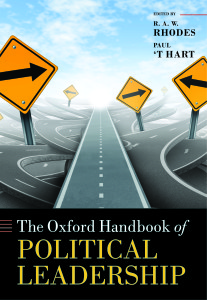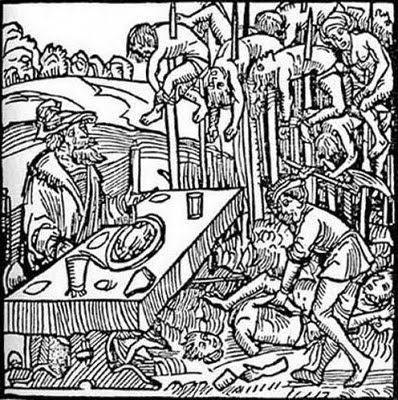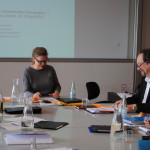PSA interview
I was interviewed by Matt Flinders at the PSA’s annual conference in Sheffield and the interview is available on YouTube and under videos above.
I was interviewed by Matt Flinders at the PSA’s annual conference in Sheffield and the interview is available on YouTube and under videos above.
The University of Southampton’s Department of Politics and International Relations climbed 23 places for leading research in the country. It was placed 15th in the national Research Excellence Framework, which assessed the quality and impact of research of all politics departments in the UK. It performed particularly well in the REF for its research publications. It was ranked 5th in the UK, with the majority of research classified as either world-leading or internationally excellent. Not bad for a small department.
I gave the keynote address on ‘Recovering the Craft of Public Administration’ to the Institute of Public Administration Australia (IPAA) International Conference, ‘The Shape of Things to Come’, Perth Convention and Exhibition Centre, 30 October 2014. As the photo suggests, it was a large auditorium. There were 700 delegates, although not all of them were at my session. I also acted as an Adjudicator in the final of ‘The Pitch’ competition with the Directors-General of the Department of Training and Workforce Development, and the Department of Agriculture and Food .
I delivered the plenary address on ‘Recovering the “craft” of public administration in network governance’ on Monday 21 July 2014 in the Palais des congrès de Montréal. There was an official photographer who supplied this pensive photograph. A draft of the paper can be found in ‘Online publications’ . The lecture was also recorded and it will appear here later.
After Xiamen, I moved on to Wuhan and further round of lectures at the Hubei University of Economics and at Wuhan University. No change in the oppressive climate or in the charm and courtesy of my hosts who are in the portrait gallery.

Since Machiavelli, political leadership has been seen as the exercise of practical wisdom. We can gain insights through direct personal experience and sustained reflection. The core intangibles of leadership — empathy, intuition, creativity, courage, morality, judgement — are largely beyond the grasp of ‘scientific’ inquiry. Understanding leadership comes from living it: being led, living with and advising leaders, doing one’s own leading.
In sharp contrast, a ‘science of leadership’ has sprung up in the latter half of the twentieth century. Thousands of academics now make a living treating leadership as they would any other topic in the social sciences, and political leadership is no exception. These scholars treat it as an object of study, which can be picked apart and put together. Their papers fill journals, handbooks, conference programs, and lecture theatres. Some work in the real world of political leadership as consultants and advisers, often well paid. This buzzing, blooming confusion would not persist if such knowledge did not help in grasping at least some of the puzzles that leaders face and leadership poses. And there are puzzles aplenty.
The first puzzle is whether we are looking at the people we call leaders, or at the process we call leadership? Leader-centred analysis has proved hugely popular but many now prefer to understand political leadership as a two-way street; an interaction between leaders and followers, leaders and media, leaders and mass publics.
The second puzzle is whether we are studying democrats or dictators. Democracy needs good leadership yet the idea of leadership potentially conflicts with democracy’s egalitarian ethos. Political leaders holding office in democratic societies live in a complex moral universe. Other heads of government gained power by undemocratic means. They sometimes govern by fear, intimidation, and blackmail. Is that leadership? However, even such ‘leaders’ may aim for widely shared and morally acceptable goals and rule with the tacit consent of most of the population. Understanding leadership requires us to take in all its shades of grey: leading and following, heroes and villains, the capable and the inept, winners and losers.

The third puzzle ponders whether political leadership matters. Leaders use their political platforms to inject words, ideas, ambitions and emotions into the public arena, to shape public policies and transform communities and countries. But when do they make a difference? What stops them from being a force in society? Or are political leaders a product of their societies? Finding out who gets to lead can teach us much, not just about those leaders, but about the societies in which they work. So, we ask who becomes a political leader, how and why? What explains their rise and fall?
The fourth puzzle explores the relative importance of their personal characteristics and behaviour compared to the context in which they work. Sometimes political leaders are frail humans afloat on a sea of storms and sometimes they survive at the helm when few thought that possible. They achieve policy reforms and social changes against the odds, and the inherited wisdom perishes. How do political leaders escape the dead hand of history?
The fifth puzzle wonders if the success of leaders stems from their special qualities or traits – the so-called ‘great man’ theory of leadership. However, we have to entertain the possibility that these allegedly ‘great’ leaders might have been just plain lucky; that is they get what they want without trying. They are ‘systematically lucky’.
The sixth puzzle is about success and failure. How do we know when a political leader has been successful? The temptation is always to credit their success to their special qualities, but no public leader ever worked alone. Behind every ‘great’ leader are indispensable collaborators, advisers, mentors, and coalitions; the building blocks of the leader’s achievements.
Political leadership is both art and profession. Political leaders gain office promising to solve problems but more often than not they are defeated by our puzzles. There is no unified theory of leadership to guide them. There are too many definitions, and too many theories in too many disciplines. We do not agree on what leadership is, or how to study it, or even why we study it. The subject is not just beset by dichotomies; it is also multifaceted, and essentially contested. Leaders are beset by contingency and complexity, which is why so many leaders’ careers end in disappointment.
Xiamen in the rainy season is a challenging climate but, undaunted, Gerry Stoker and I delivered between us eight three-hour lectures to a summer school of some 50 postgraduates. The student audience was keen on photos and sent several photos of me in action.
The weather was enervating. Language difficulties were inevitable. But the students were excellent and our hosts were charming. Best of all we went to a tea growing area and were introduced to the impressive variety that is Chinese tea. We went to the local tea museum and burnt incense for the Goddess of tea (we think, it wasn’t entirely clear).
The thunder storm was impressive. The driving was scary with the concepts of left and right socially constructed minute by minute.
I gave the keynote address on ‘Recovering the Craft of Public Administration’ to the Institute of Public Administration Australia (IPAA) International Conference, ‘The Shape of Things to Come’, Perth Convention and Exhibition Centre, 30 October 2014.
 Six days of back-to-back papers sounds like a recipe for boredom by the megaton. Nothing could be further from the truth. The course for the PhDs was a joy – bright-eyed, bushy-tailed enthusiasm from all sides and some fascinating fieldwork to boot.
Six days of back-to-back papers sounds like a recipe for boredom by the megaton. Nothing could be further from the truth. The course for the PhDs was a joy – bright-eyed, bushy-tailed enthusiasm from all sides and some fascinating fieldwork to boot.
 In comparison, a workshop with colleagues could have been an anti-climax. Instead, it was an opportunity to share experiences with the like-minded colleagues in the photo. We seized it with both hands not only in the sessions but also in bars and restaurants. It wasn’t tiring or boring – it was refreshing. For more information go to: http://www.cbs.dk/node/340196
In comparison, a workshop with colleagues could have been an anti-climax. Instead, it was an opportunity to share experiences with the like-minded colleagues in the photo. We seized it with both hands not only in the sessions but also in bars and restaurants. It wasn’t tiring or boring – it was refreshing. For more information go to: http://www.cbs.dk/node/340196
I was awarded a Special Recognition Award by the UK Political Studies Association. The award was the unanimous choice of a jury of distinguished academics and journalists who met recently at Westminster. The jurors agreed that Rod’s contribution to political science has been ‘outstanding and increased enormously our understanding of how government works and done much to raise the esteem of the discipline’. The award was presented by Shami Chakrabarti, Director of Liberty (The National Council for Civil Liberties) at the recent Political Studies Association Annual Conference in Manchester.
